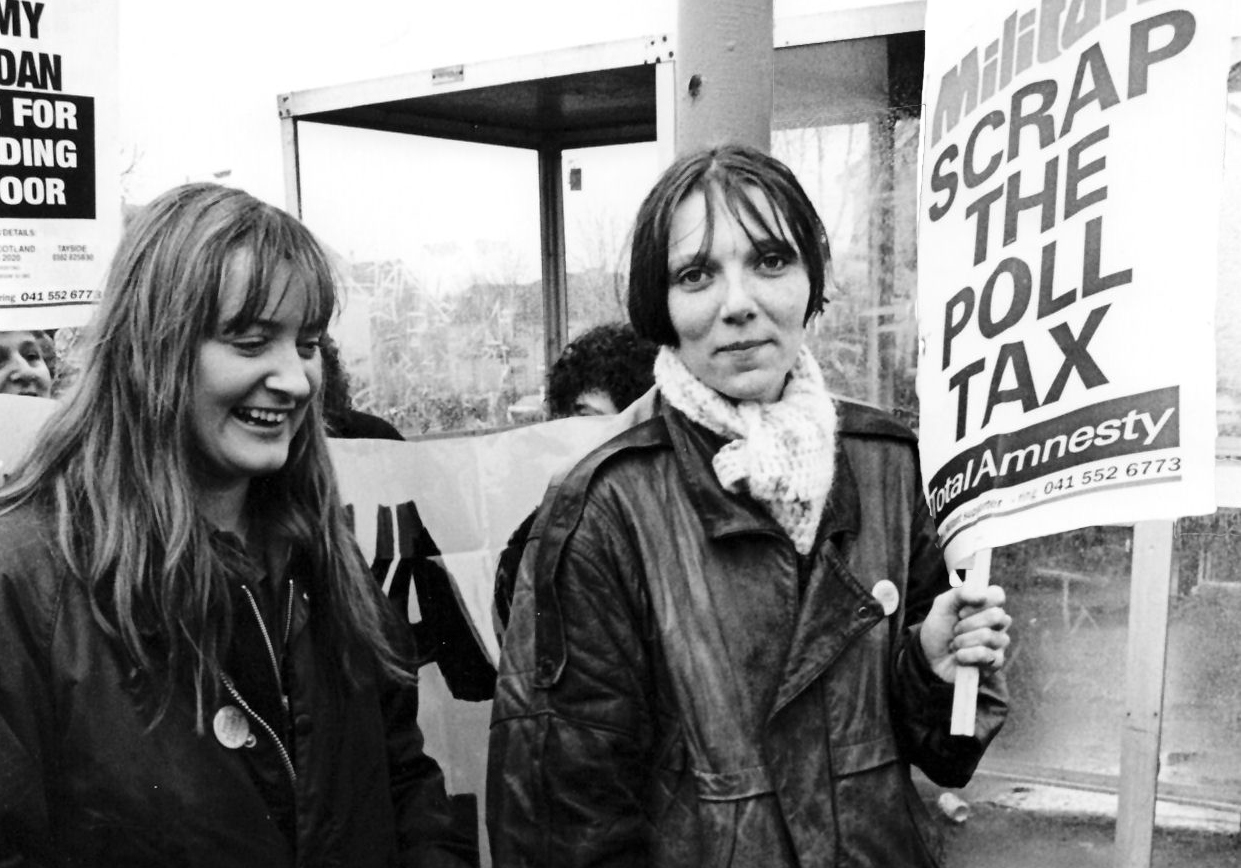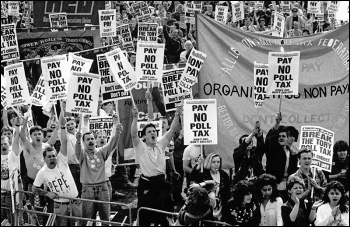18 million refused to pay
Steve Score, former secretary, Leicestershire Anti-Poll Tax Federation
The campaign against Thatcher’s poll tax is an example of how a mass movement can defeat a government. 18 million people, organised through the All-Britain Anti-Poll Tax Federation, defied the law and refused to pay the tax.
This not only forced the Tories to scrap it but ended Thatcher’s career as prime minister.
The campaign also shows the role that can be played by socialists in putting forward a strategy and tactics to win.
The poll tax was a standard charge on rich and poor alike. It was levied on each person over 18, including the unemployed, students and those with no personal income at all, who had been exempt from the poll tax’s precursors, the rates. In fact a rich person could end up paying far less that a poor family.
Led by Militant, the Socialist Party’s forerunner, mass non-payment was built by community based anti-poll tax unions in cities, towns and villages across the country. These were linked nationally into the Anti-Poll Tax Federation.
Militant predicted the anger the tax would cause, and saw the huge potential to build a mass movement.
The trade union leaders and the Labour Party leadership opposed the tax verbally, but did nothing to fight it, actively opposing the non-payment campaign.
Labour councils ultimately sent bailiffs into working class people’s homes to impound their property and jailed people for not being able to pay.
The tax was introduced in Scotland a year earlier than in England and Wales; perhaps because the Tories had so little support there, they felt free to experiment! But it ignited Scottish workers’ anger and the method of mass non-payment was tested out.
Militant supporters had to argue against those who said mass non-payment wouldn’t work, or would only get working class people in debt.
Some advocated non-payment only for a few prominent individuals who ‘could afford it’.
On the contrary, only a mass movement would work. In fact millions would not be able to afford it and we planned to unite the ‘can’t payers’ with the ‘won’t payers’. That way an organised campaign could defend people.
Mass demonstrations developed around the rate-setting council meetings. On 31 March 1990, the day before the poll tax was introduced in England and Wales, simultaneous mass demonstrations in London and Glasgow involved a quarter of a million people.
When the London demonstration reached Trafalgar Square, police actions provoked a big battle later known as the ‘poll tax riots’.
Some claim that these big demos beat the poll tax. They were important, but it was organised mass non-payment which was the real reason for its demise.
We kept the confidence of the movement up by discussing and answering every question, in meetings and in millions of leaflets.
Jailings
We clogged up the courts by mobilising non-payers to attend their hearings and assisted people by asking questions in court.
Court rooms were unable to cope. We mobilised to stop the bailiffs from seizing property. We organised to stop poll tax jailings – the ultimate sanction.
Hundreds were sent to prison, including many Militant supporters. The late Terry Fields, a Liverpool MP and Militant member, was sent down for standing in solidarity with his constituents.
However, the number of jailings, compared to the millions who refused to pay, was far fewer than would have been if there was no organised campaign.
The government announced in March 1991 that they would be scrapping the tax by 1993. We continued to support people and campaigned for the writing off of the debts. Many were actually secretly dropped by councils at a later date.
This movement showed that working class people can win battles. It also showed the critical role that a party with the right ideas can play in the struggle.










